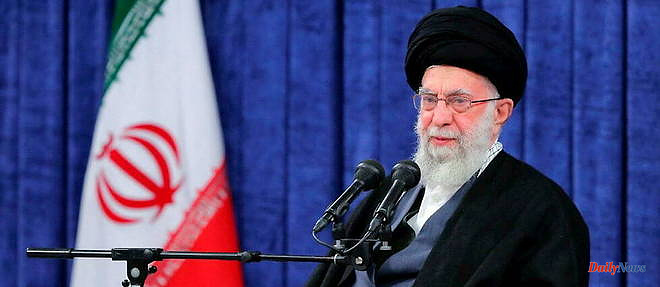Executed by hanging. On Monday May 8, Tehran executed two men for blasphemy. Immediately, Washington and several human rights NGOs rose up and condemned. Sadrollah Fazeli Zare and Youssef Mehrdad, convicted of "insulting the Prophet Muhammad and other blasphemies, including burning" a copy of the Quran, were hanged on Monday morning, according to the agency's website. information from the judicial authority Mizan Online.
Their execution comes in a context of increasing application of the death penalty in Iran, denounce the NGOs, according to which the year 2022 was marked by the highest number of executions since 2015.
The United States condemned the execution of the two men, calling it a "serious reminder of the Iranian regime's penchant ... to violate the human rights of the Iranian people", the deputy spokesperson for the Iranian regime told reporters. State Department, Vedant Patel. “Blasphemy laws remain an affront to human rights around the world,” he added, affirming that “the United States will continue to take appropriate action in coordination with our allies and partners to continue to hold the line. Iranian regime responsible for its gross human rights violations”.
The two executed men were accused of leading social media groups "promoting atheism and insulting holy figures of Islam", according to Mizan. In March 2021, one of the defendants admitted to posting insults on a Telegram account, the agency added. The two men were hanged in Arak prison in central Iran.
“The Islamic Republic has once again demonstrated its medieval nature by executing two people who had expressed their opinion,” reacted Mahmood Amiry-Moghaddam, director of the NGO Iran Human Rights (IHR), based in Norway.
The executions should mark "a turning point" for countries committed to freedom of expression in their relations with the Islamic Republic, he said. "The international community must make it clear that the use of the death penalty to suppress expression of opinion will not be tolerated," he said.
For its part, the NGO Amnesty International called these executions "shocking" and considered that they further reinforced "Iran's pariah status".
According to IHR, at least 208 people have been executed since the start of the year. In 2022, 582 people suffered the death penalty, up 75% from the previous year, reported in April IHR and another organization, Together against the death penalty (ECPM), based in Paris. Islamic (Sharia) law in Iran allows for the death penalty for blasphemy charges, but executions on this charge have been relatively rare in recent years, with the vast majority of those executed being on drug or murder charges.
Iran is the second country with the highest number of executions after China, according to several NGOs, including Amnesty International. For Amnesty, these new executions "come within the framework of a sharp increase in the use of the death penalty by the Iranian authorities in recent weeks".
This increase in executions coincides with the protest movement triggered in September in Iran after the death of a young Iranian Kurd, Mahsa Amini, who died after her arrest by the morality police who accused her of having broken the strict dress code imposing in particular to women the wearing of the veil. The protest has been violently suppressed, with at least 537 people killed by Iranian security forces since September, according to IHR. Four men were executed in direct connection with the protest movement.
Separately, an Iranian-Swedish dissident, Habib Chaab, convicted of leading an Arab separatist group in the west of the country and sentenced to death for "terrorism", was executed on Saturday. The European Union denounced an "inhumane punishment". A German citizen, Jamshid Sharmahd, was sentenced to death in connection with an attack on a mosque in 2008.
"Without urgent international action, the Iranian authorities will continue to use the death penalty to torment and terrorize the population, crush protests and all forms of dissent," Amnesty warned.












